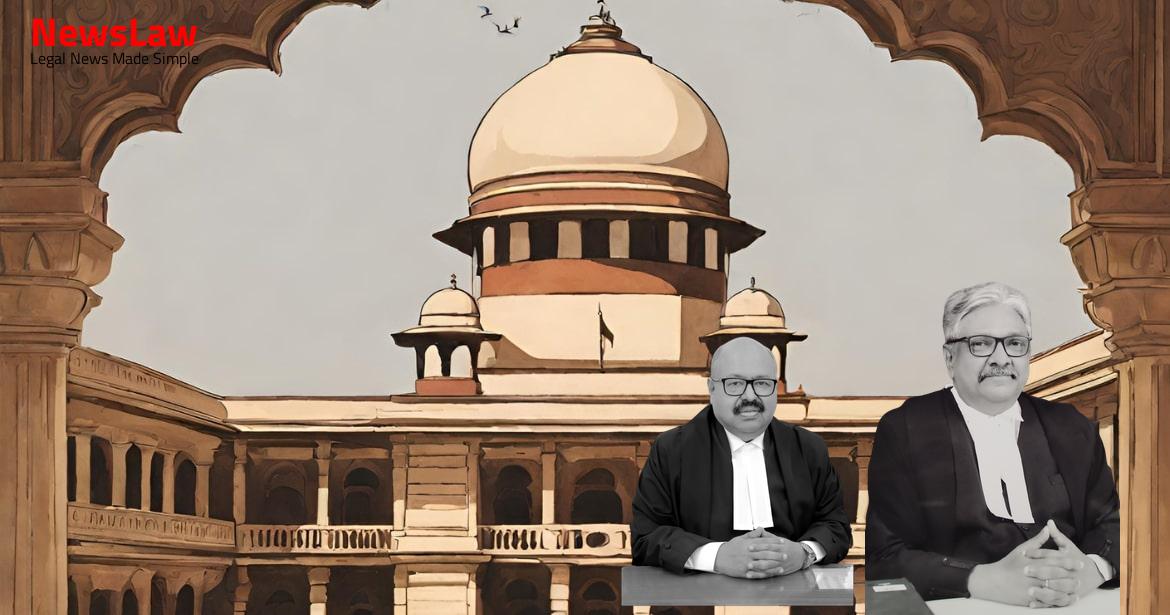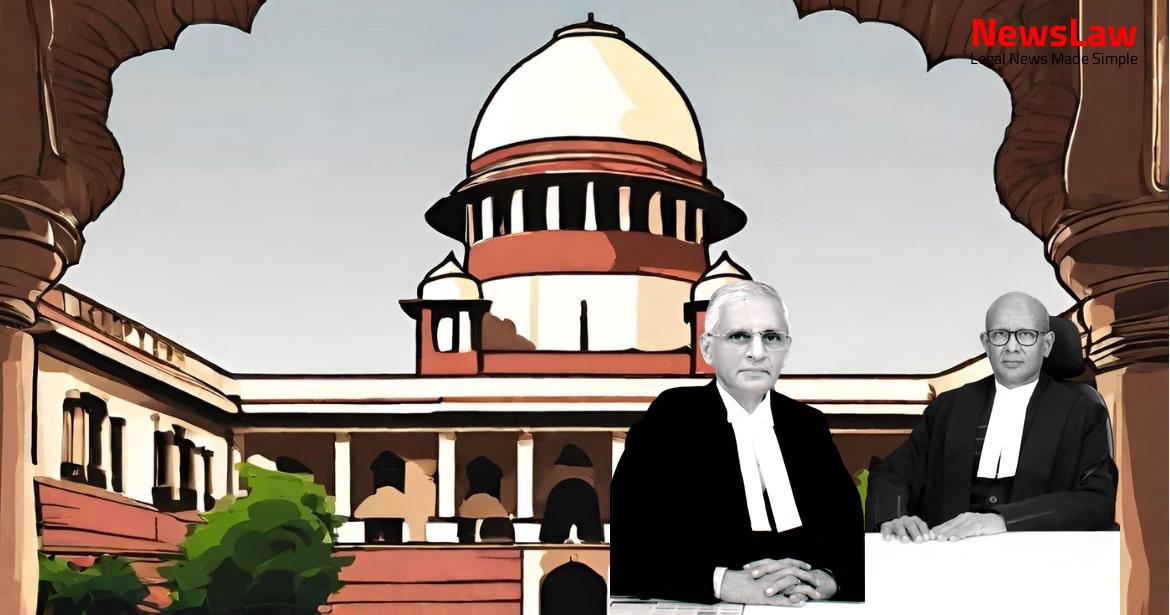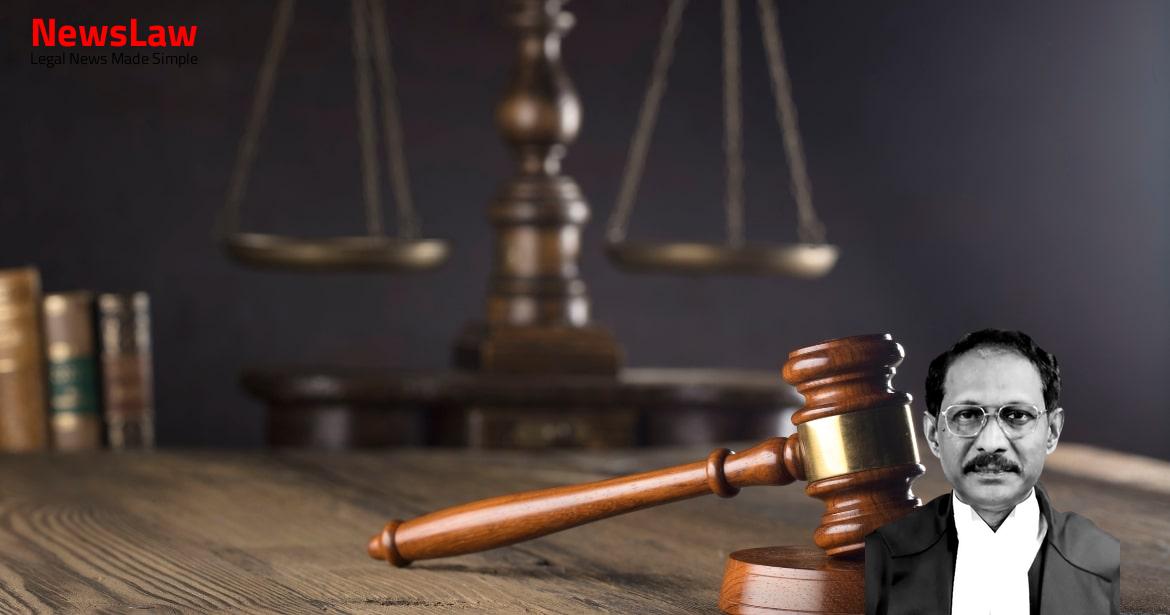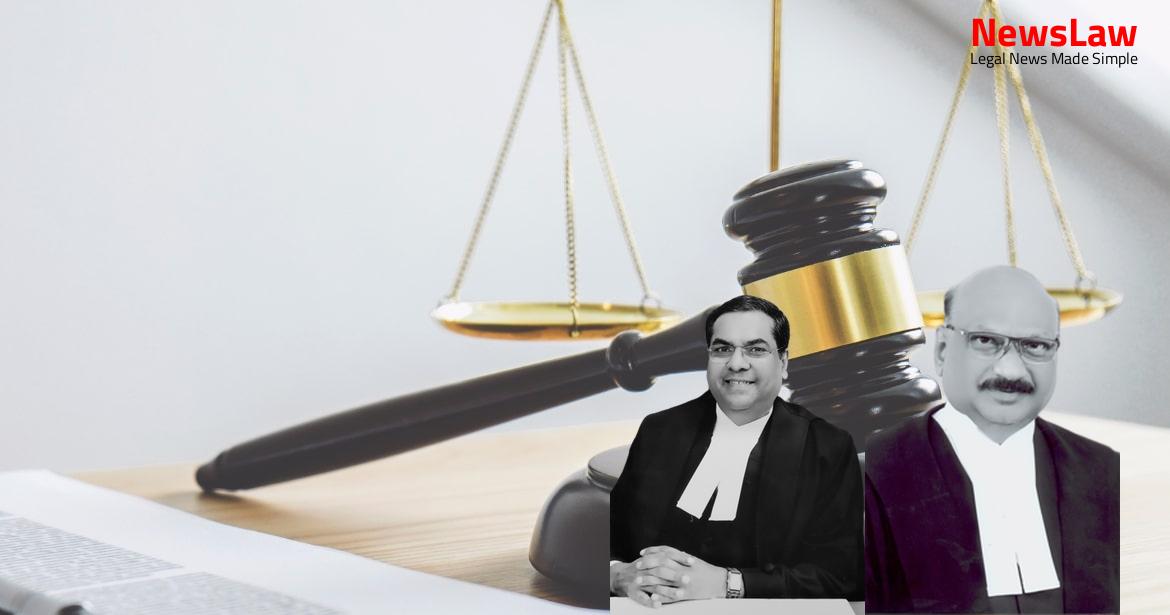Explore the meticulous legal analysis conducted by the Court in a recent case regarding the classification of Lohars as Scheduled Tribes or OBCs. This case delves into the constitutional aspects, legal precedents, and the impact of an impugned Notification that challenged established norms. The Court’s role in rectifying wrongful decisions, upholding the Rule of Law, and safeguarding citizens’ rights is emphasized throughout the judgment. Stay tuned to grasp the intricacies of legal interpretation and the importance of adhering to established legal frameworks.
Facts
- The Constitution Scheduled Caste Scheduled Tribe orders amendment Act 2006 No.48 of 2006 has been repealed by the Repealing and Amendment Act 2016 (Act No.23 of 2016) Parliament.
- Approval is given to issue Scheduled Tribe Certificate and other facilities to Lohara (Lohar) Community based on the Constitution Scheduled Caste and Scheduled Tribe Order amendment Act 1976 (Act No.108/1976).
Also Read: Judicial Analysis on Back Wages in Employee Caste Verification Case
Issue
- The issue in this appeal is whether the Central Administrative Tribunal was correct in its decision regarding the appellant’s belonging to the Lohar community
- The appellant claims to belong to the Lohar community declared as a Scheduled Tribe in Chapra District of Bihar
- The petitioners have approached the Court stating that the circumstances necessitated a direct appeal to the Court
Also Read: Interpretation of Suspension Rules in Employment Case
Arguments
- The petitioners argue that the Lohar community in Bihar should not be considered as members of the Scheduled Tribe, as per Article 342 of the Constitution.
- They challenge the 2016 Notification issued by the State of Bihar under the 1989 Act.
- The petitioners claim that the State disregarded the law declared by the Supreme Court on three occasions.
- There is a delay of five years in seeking protection under Article 32 of the Constitution.
- Parliament repealed the aforementioned enactment by Act 23 of 2016.
- The petitioners argue that the right to approach the High Court or Supreme Court under Article 32 remains a Fundamental Right.
- The doctrine of prospective application of judgments may apply, especially regarding the status of Lohars as Scheduled Tribes.
- The petitioners argue that the Hindi version should prevail in case of conflict with English versions of texts, leading to injustice and incarceration.
- The impugned Notification has led to numerous FIRs and deprivation of liberty in Bihar.
- The petitioners were refused protection under Section 438 of the Cr.P.C. and should have worked out their remedies against those orders.
- Article 32 of the Constitution is a Fundamental Right meant for enforcement of Fundamental Rights and is part of judicial review.
- The right to approach the Supreme Court for enforcement of Fundamental Rights is considered as part of the basic structure of the Constitution.
- Learned Senior Counsel for the appellant argues that the Hindi version is the authoritative text after the Official Languages Act, 1963.
- In case of ambiguity between Hindi and English versions, the Hindi version would prevail according to the appellant.
- Article 348 of the Constitution specifies English as the authoritative text for Acts of Parliament, subject to any law made by Parliament.
Also Read: Legal Analysis of Assignment and Ratification in Property Law
Analysis
- The judgement discusses the issue of the impugned Notification issued in August 2016 regarding the status of Lohars in the Bihar State.
- The Court emphasizes that Lohars are categorized as Other Backward Class (OBC) and not Scheduled Tribes, thus not entitled to the benefits of Scheduled Tribes.
- There was a repetitive attempt to re-open the declaration made in previous cases regarding the status of Lohars.
- The implications of the Notification are highlighted, affecting citizens’ rights adversely and leading to the need for judicial intervention.
- The Court delves into the constitutional aspect and the legality of the impugned Notification, citing the flaws in the decision-making process and its impact on the rights of individuals.
- The judgment points out the importance of adhering to the Rule of Law and respecting the decisions made by the Courts.
- An analysis of the historical context and legal precedents related to the status of Lohars and their classification as Scheduled Tribes or OBCs is presented.
- Inconsistencies between the English and Hindi versions in legislative amendments further complicate the matter, leading to erroneous interpretations.
- The Court’s role in upholding justice, safeguarding Fundamental Rights, and rectifying wrongful decisions is underscored.
- The significance of accurate legal interpretations, verification of facts, and adherence to established law by the State are emphasized throughout the analysis.
- The Court discussed the issue of delay or laches in filing petitions and emphasized that for violations of fundamental rights to life and personal liberty, delay alone should not be a reason to dismiss a petitioner’s plea.
- The Court highlighted the importance of Presidential notifications specifying caste, race, or tribe for Scheduled Caste or Scheduled Tribe status, and the authority of the President to limit the notification to parts or groups within the caste, race, or tribe based on social and educational backwardness.
- It was clarified that the Court’s role is to interpret rules and determine the entitlement of a particular caste, tribe, or part thereof to claim the status of Scheduled Tribes.
- The judgment in Nityanand Sharma case did not require reconsideration, except for the Palghat case, which was later reviewed in another judgment.
- The Court referenced the Vinay Prakash case, where the Lohar community made efforts to seek the status of Lohara, emphasizing the repeated attempts by the community to establish their status.
- An error was noted in accepting incorrect facts, and the Court discussed the eligibility of a person not mentioned in the Presidential notification to claim the status of a Scheduled Tribe.
- The judgment in Bhaiyalal v. Harikishan Singh was cited regarding a Constitution Bench’s decision on whether a caste was considered a Scheduled Caste in an election petition.
- The Court examined the power of Parliament as outlined in sub-Article (2)
- Parliament is granted the authority to include or exclude items from the list
- This decision is the first one in the series of three judgments discussed in the case
- – Petitioners 2 and 4 underwent imprisonment due to a casual approach by the State, leading to avoidable situation.
- – The writ petition is allowed, and the impugned Notification is to be quashed.
- – Petitioners seek compensation, and the court imposes a cost of Rs. 5,00,000/- as compensation.
- – The prosecution of the two petitioners was not solely based on their caste under the 1989 Act.
- – No relief sought regarding quashing of the proceedings.
- – The impugned Notification directed certification for the ‘Lohara/Lohar’ community.
- – The court has the power to grant compensation for violation of Fundamental Rights.
- – Despite differences between ‘Lohara’ and ‘Lohar’ communities, petitioners must be provided for with monetary compensation.
- – No further judgments are referenced in this case.
Decision
- The writ petition was allowed, and the appeal was allowed while vacating the order of the Tribunal.
- The appellant was directed to return to duty.
- Respondent No. 1 was directed to pay costs of Rs.5,00,000 within one month and produce proof of payment within six weeks.
- The impugned Notification was quashed, and the courts were directed to take note of the pronouncement.
- The petitioners were required to work out remedies in the appropriate forum.
- The quashing of the notification should not affect the ‘Lohara’ community’s status as a Scheduled Tribe.
- The quashing of the notification was upheld specifically for the ‘Lohar’ community, ensuring that Lohara would continue to receive benefits under the Presidential Order as amended by the Acts.
Case Title: SUNIL KUMAR RAI Vs. THE STATE OF BIHAR (2022 INSC 212)
Case Number: W.P.(C) No.-001052 / 2021



